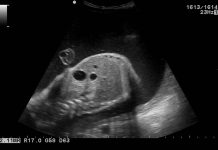The first few days after your baby’s birth is a very crucial time. The immune system is not yet developed fully. Hence your little one is prone to falling ill. Neonatal infections are one such danger. Any child can face during the first weeks of life. These are usually treatable. However, in extreme cases, they can require hospitalization. They can even become fatal.
Here is a look at what are neonatal infections, their signs and symptoms and methods of prevention.
Read More: 11 Common Neonatal Infections New Moms Should Know
What are Neonatal Infections?
Neonatal infections are infections of the neonate or newborn. This happens during the first four weeks after birth. Neonatal infections may occur by transfer of the placenta. It can also happen in the birth canal during delivery. These can also be caused by other means after birth.
Some neonatal infections are apparent soon after delivery. Some infections might develop within the first week or month, after the birth of your child. . Few infections acquired during pregnancy become critical. Sometimes they do not become apparent until much later. These are HIV, hepatitis B and malaria.
The agents causing Neonatal Infections are bacteria, viruses and fungi. The source of infectious bacteria is often the stomach, intestine and the vagina of the mother of the infant.
However, these germs may also be present in the environment that your baby encounters after he or she is born. As your baby’s immune system is not fully developed, they are more prone to these infections.
There are a few serious neonatal infections like Sepsis, Meningitis, Pneumonia etc. These are caused by bacteria and viruses. Look below for the signs of detecting such infections.
Signs of Neonatal Infections:
- Problems in breathing soon after birth
- Seizures
- Signs of shock
- Change in behavior
- Altered muscle tone
- Feeding difficulties
- Vomiting
- Abnormal heart rate
- Breathing problems or gasping
- Reduced oxygen saturation level
- Jaundice within 24 hours of birth
- Temporary stopping of breathing during sleep
- Signs of affected functioning of the brain
- The need for cardiopulmonary resuscitation
- Continued high blood pressure
- Too high or too low body temperature
- Unexplained excessive bleeding
- Abnormal blood clotting
- Small amount of urine continuing even after 24 hours of birth
- Unsteady blood sugar levels
- Rashes or other local signs of infection
- Listlessness
- Irritability
- Excessive crying
- Soreness in muscles and crying when picked up
Read More: 11 Early Signs of Neonatal Sepsis
Prevention:
The following are ways to prevent Neonatal Infections-
Routine Screening
Routine screening is important for women suffering from HIV, hepatitis b. Tell your doctor your entire history of infections so that he/she is aware of your condition.
Antibiotics
Treatment of the mother, before delivery, with antibiotics reduces the rate of neonatal infection. Prevention of the infection of the baby is done by treating the mother with different antibiotics.
Read More: 11 Natural Ways of Treating Impetigo in Babies
Cesarean Delivery
Cesarean delivery reduces the risk of infection of the infant. Majority of the viruses and bacteria transferred to your baby happens at the time of vaginal birth. By a Cesarean delivery you can reduce the chance of your baby getting an infection.
Anti-viral Drugs
Women with a history of Herpes can be treated with antiviral drugs. This can prevent Neonatal infections. There are many anti-viral medications. They can be given by your doctor to treat this illness. If you have had a case of herpes within the last six weeks of your pregnancy, inform your doctor immediately.
Maternal and neonatal immunization
Immunizing yourself from all kinds of infections before giving birth is important. This can prevent neonatal infections easily. Similarly, vaccination of the newborn will also prevent various infections. Talk to your healthcare provider about all required vaccinations and immunizations. You should do this before and during pregnancy.
Improved maternal health
The health of the mother is a vital thing for the infant. A woman going into labor with any kind of infection puts the newborn at risk of acquiring infections. Hence, early diagnosis and prevention of any infection in the mother keeps the infant safe.
Bacteria free hospital
Infections can occur after the first week but before the age of 30 days of a baby. These are considered late onset infections. They are usually acquired by the infant in the hospital. The hospital environment sometimes transfers infection. Then the newborn is forced to make antibiotics.
The excessive use of antibiotics in the hospital can increase the risk of infection. Therefore, a bacteria free environment is needed. This can successfully prevent infections in a newborn.
Hygiene of hospital staff
Infections can spread through touch also. It is very important for the hospital staff present during delivery to wash their hands and maintain hygiene. This can prevent the transfer of germs to the newborn baby.
Probiotics
Probiotics have been found useful in protecting against neonatal infection. , The consumption of probiotics can ensure a healthy birth. Many doctors suggest probiotics for mothers-to-be.
Breastfeeding: Breast milk prevents infections in a newborn baby. Breastfeeding protects against infections like neonatal septicemia and several other infections. Breast milk should be fed to newborns to prevent infections. Absence of breast milk makes the infant more vulnerable. In such way, breast milk saves lives.
Read More: Health Benefits of Probiotics for Children
Minimizing vaginal examination
Frequent vaginal examination of a woman can increase the risk of neonatal infection. Vaginal examinations should be minimized. This can prevent such infections in the infant. Vaginal examinations make way for infections. This increases the chance of contamination. Your child might suffer in the long run.
Read More: 21 Home Remedies for Getting Rid of Vaginal Odour
Conclusion:
Newborns are easy victims of infections. Mostly it happens to those infants who are born prematurely. Sometimes it happens to children who weigh less than normal. Harmful pathogens infect them before, during and after birth. Neonatal infections account for a significant proportion of neonatal deaths.
Diagnosis of neonatal infection is a challenge for doctors. Sick newborns often show no apparent signs and symptoms of infections, even in blood culture. Only 5-10% of the cases are actually detected. Therefore, any suspicion of an onset of infection is immediately treated with antibiotics. This is done to prevent worsening of the condition.
References:
https://patient.info/doctor/congenital-perinatal-and-neonatal-infections
https://www.ncbi.nlm.nih.gov/pubmedhealth/PMH0051807/













